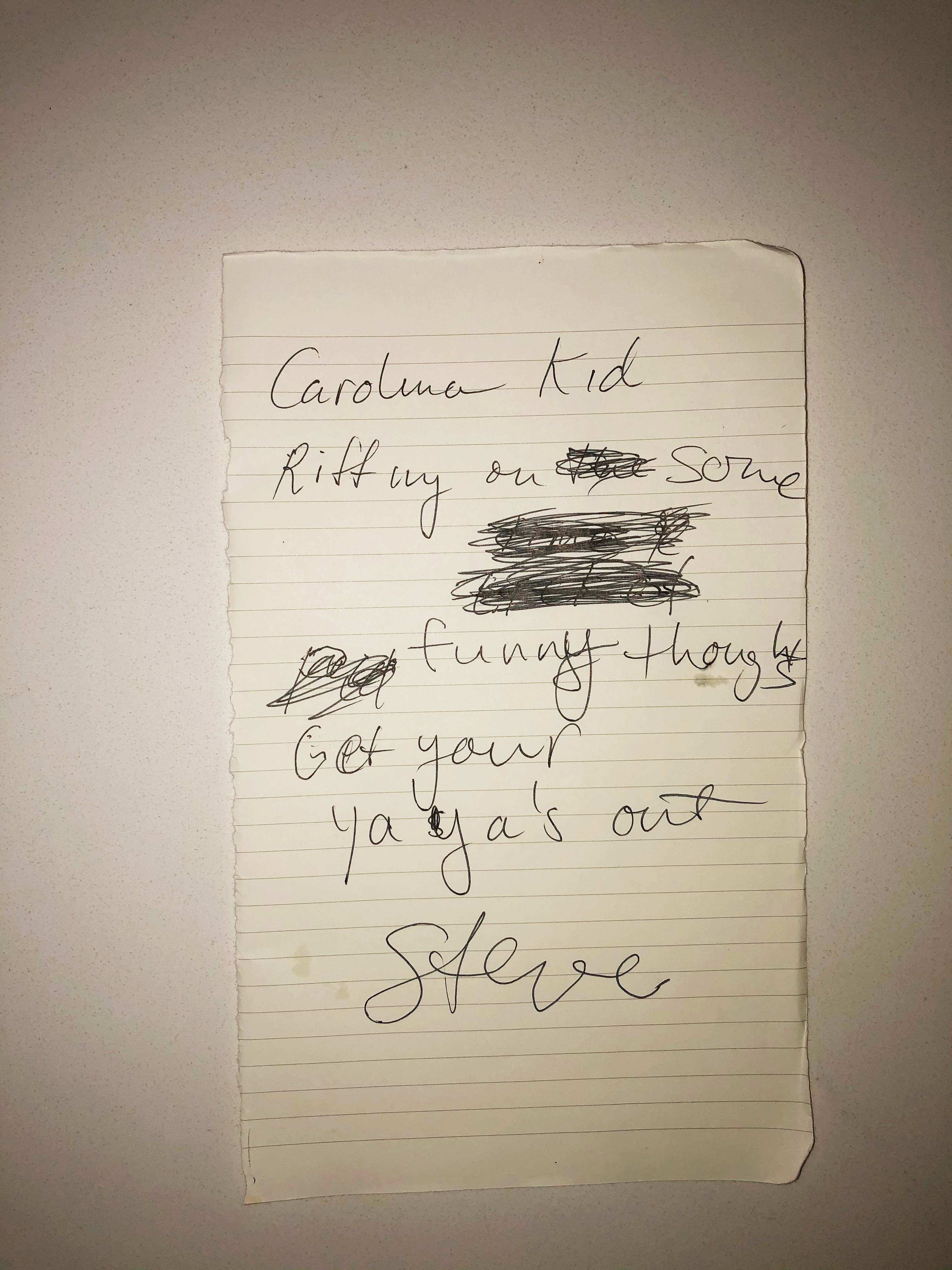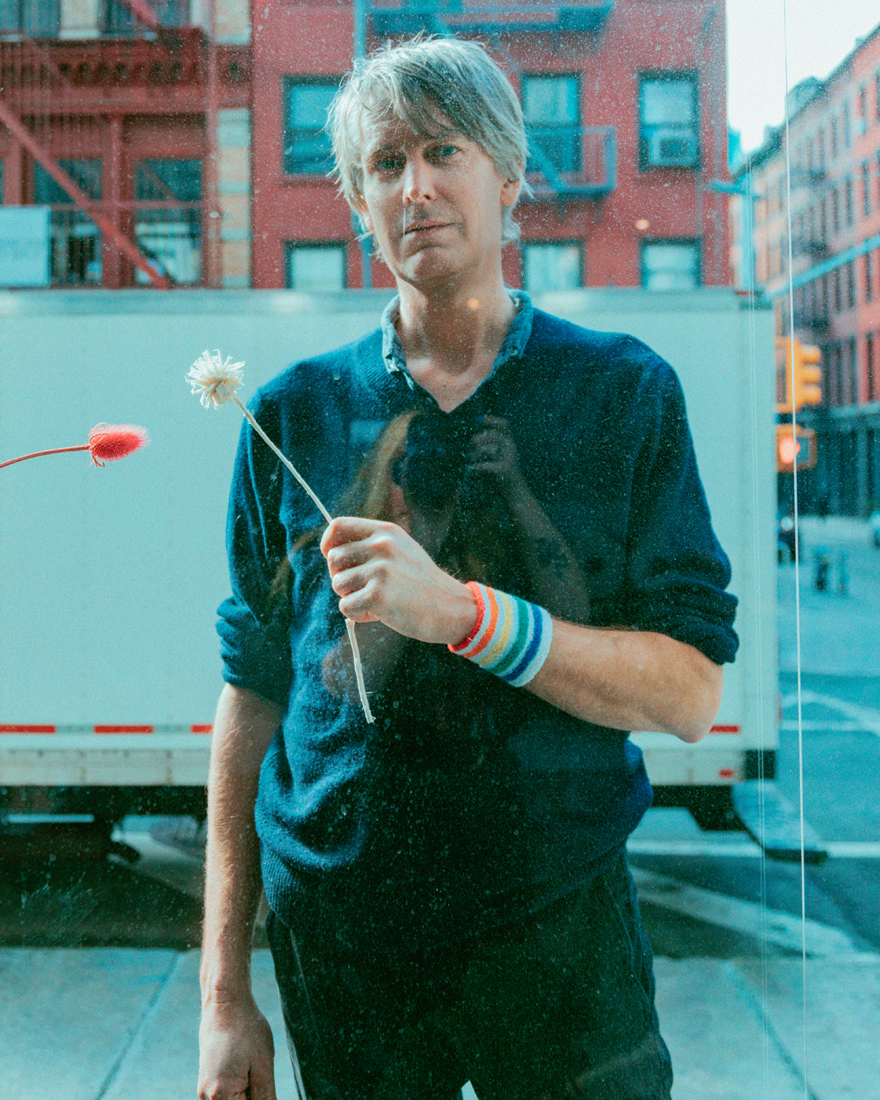
“Do you like beards?”
This is not the most random question I would expect from Stephen Malkmus, but it still takes me by surprise. I mean sure, facial hair can be attractive on a man. I love a good salt and pepper five o clock shadow, the feel of a grizzly face too busy riding motorcycles or killing deer for a candlelit venison dinner to be bothered to take a blade to it.
My thoughts go rogue for a minute while I think of how to answer. A long brown mane on a mountaineer with rotting food remnants of a cheese variety starts to form an imprint on my mind. A downward spiral of image association follows. I say, “Ew, no,” out loud before I fumble out a story about how my dad shaves his armpit hair and hated my grunge stage. Stephen laughs when he says, “Your dad manscapes?”
Two tall strangers sinking into a black leather sofa is about as Malkmus as Malkmus can get. I only think this because after years of listening to his disjointed music, meeting an almost 6’5 Stephen in the offices of Matador Records while he does press for his latest album is a soliloquy that seems to write itself. Wearing a terry cloth wristband to signify he’s ready at any time to pick up a racquet or guitar, our legs bend cricket-like beneath us.
“Two tall strangers / Black couch jangles / She sat, and I watched her take him on down / On a large leather sofa, she was the talk of the toowwwn…”
I can imagine Stephen singing this out in his trademark on-key-but-sounds-like-it-should-be-off, post-pubescent hoarse twang. Part Queen, part Nirvana, a bizarre niche that only someone who could sing aloud to both can truly appreciate. He’s made a career of making musical limericks that twist the tongue and the soul.
“I’m not a brilliant lyricist, but you know, I can take my time and get someplace eventually,” Stephen says in a semi-bashful way.
During my formative years, Pavement, the Malkmus fronted indie-rock-underdog band of the ’90s, would bounce from the walls of my postered rooms with discord that felt like an awkward hug. It was unnerving and consoling all at once, different versions of the same songs recorded, each carrying new angst and message behind it.

Haiku by Steve, 2020
Pen on paper
This era of music was a perfect soundtrack to my slacker-jock highschool life. It was like an audible fusion of Wes Anderson and John Hughes that existed both on the suburban soccer fields and underbelly rock clubs that a sixteen-year-old could get into if she wore enough eyeliner. Could Stephen and I perhaps be kindred spirits? Even friends in high school? I like to think our affinity for both sports and indie rock would have made us close allies in a different time and space.
“It’s not like I was Mr. Cool or anything,” Stephen says when talking about his teenage years. “I mean, I didn’t play in the school band. My heroes were groups like, KISS, and I couldn’t imagine them doing that. They probably did start with high school, but I just was like, ‘No, you can’t.’ I played acoustic guitar at home though. I had some lessons on Spanish guitar. It’s not like real cool or anything. I was also playing soccer and tennis. I mean I wasn’t a mainstream jock but…”
So maybe I would have just prank called Stephen and secretly had a crush on him. I mean, didn’t all girls like tall brooding musicians at that age?
Today, although Stephen’s broodiness and height remain intact, his music has transcended into a more introspective, existential sound. The Malkmus vibe, part fantasy, part swirly narrative has been a mainstay in the music world for this very reason. Traditional Techniques, his latest feat, is a more insightful side of the musician. The album is a slow dive that sounds like it was recorded with Stephen laying on Moroccan carpets, high on hash while a band of gypsies play acoustic flutes and sliding guitars around him.
It’s a sweet record, like a father lending some wayward advice to children navigating this world of expectations and loss. Some inspiration might have been found in his current role as a husband and a dad.
“It’s just a different paradigm of existence,” he says of family life. “I’m even less self-aware instead of more self-aware. Plus, once you live in Portland, just nothing happens. It just inches ahead and really slowly, like a reverse of a glacier boom melting.”
Inspiration comes to Stephen in the same ways a glacier might melt; authentically and massive. He finds fleeting beauty in every moment, other people’s music, like sounds and vibrations, the ways sideways might connect, books, quotes, and weird associations.
“It could be anything really,” He says, “Like an image or like a faded anorak. I think of the type of person who might wear old Patagonia. I’ll look in my closet and see an old jacket and think, ‘I can’t wear that anymore’. So the person who is still wearing that like gives you an image. That will leave me thinking poetically and I’ll just want to put that in my notebook or my phone. Then eventually something will come from all that.”




CONNECT WITH STEVE:
INSTAGRAM // SPOTIFY // TWITTER
Photos / Savanna Ruedy
Story / Koko Ntuen
